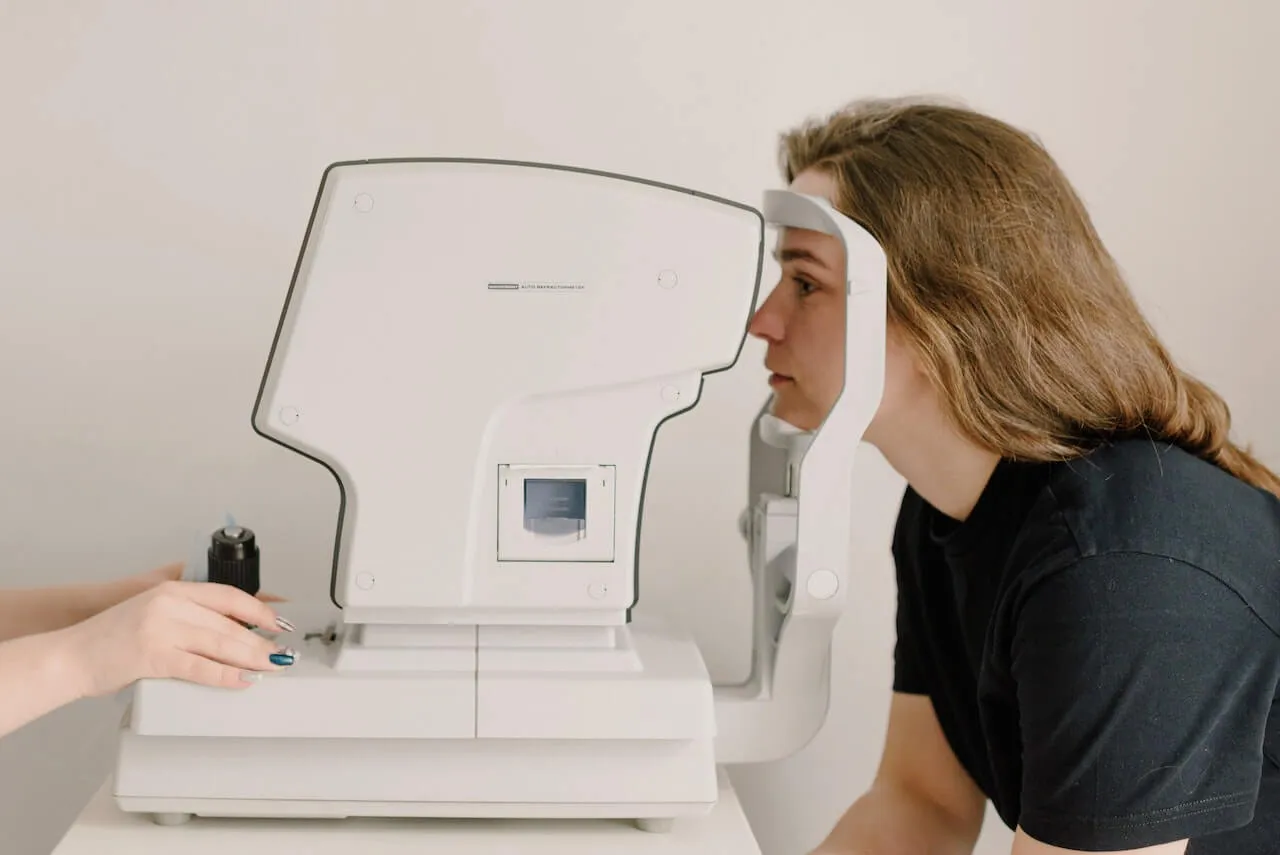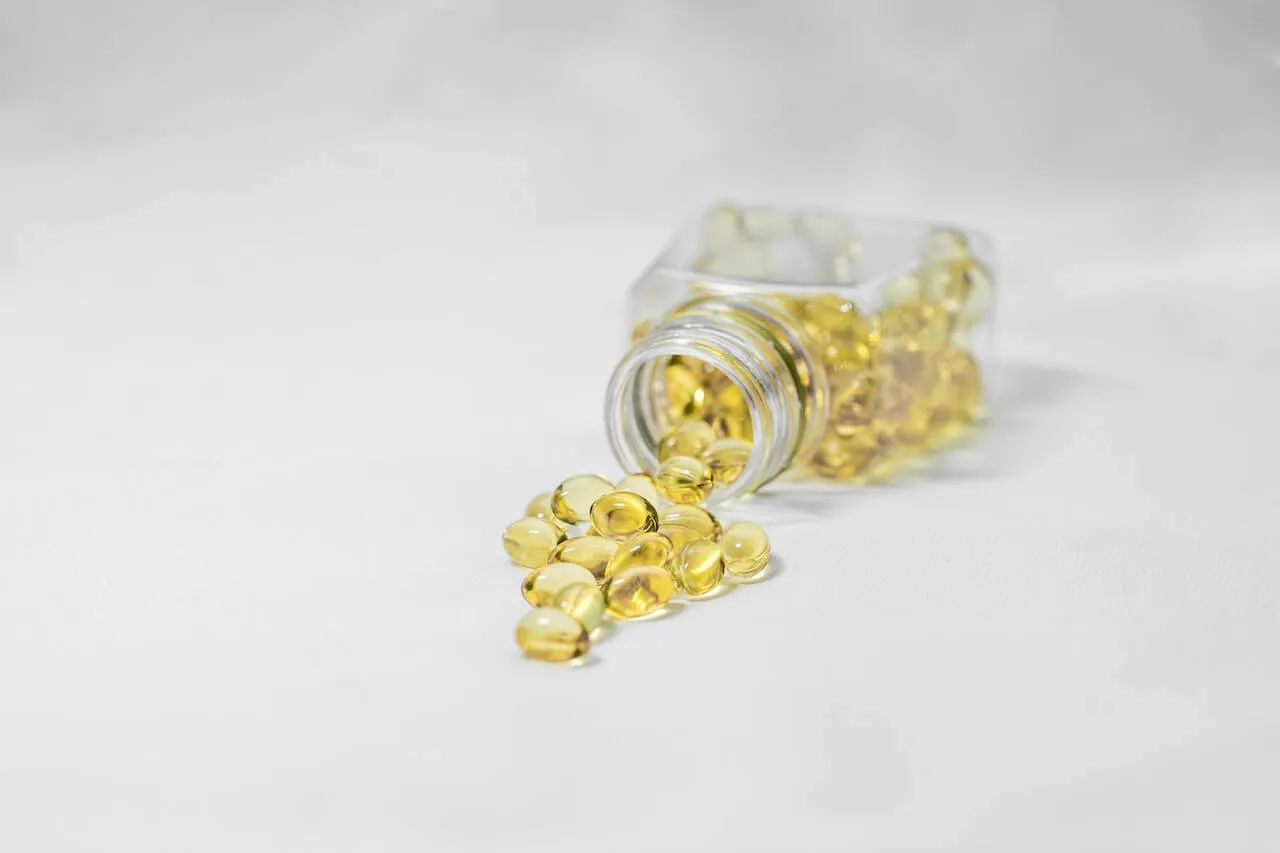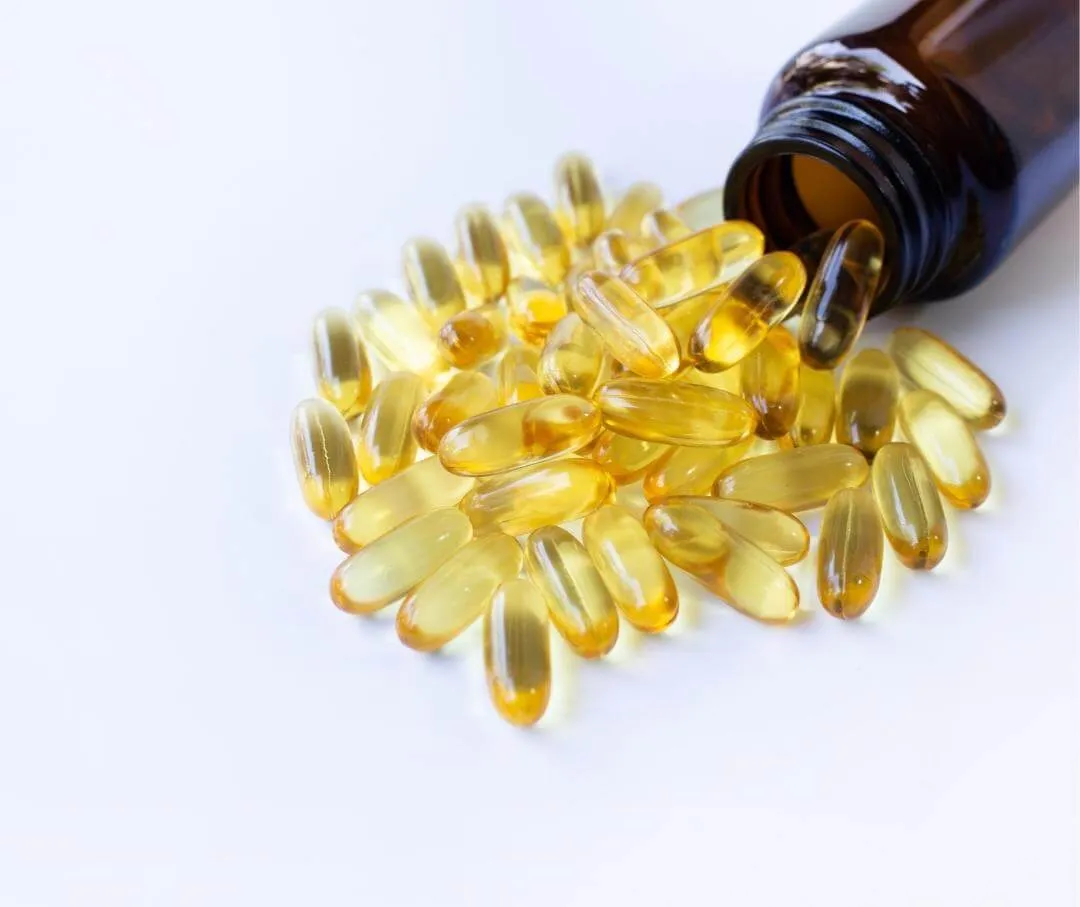Fish oil boasts many health benefits, solidifying all the hype around fish oil supplements. Rich in essential fatty acids and fat-soluble vitamins, cod liver oil is no exception. It’s a good source of omega-3 fatty acids, especially docosahexaenoic acid (DHA) and eicosapentaenoic acid (EPA), which play a role in bodily functions like muscle activity and cell growth. And it’s also rich in vitamins A and D, supporting many other avenues of health.
You can harness these benefits by consuming fatty fish, like mackerel, or through dietary supplements. In this article, we’ll break down the science behind cod liver oil benefits so you can decide if a fish oil supplement is right for you.
What Is Cod Liver Oil?
Cod liver oil is sourced from the liver of codfish (of course!) — typically from Atlantic cod. Many consider it a delicacy and can be consumed fresh, canned, or even as a nutrient-dense ingredient in various dishes. This healthy fat packs a punch nutritionally, offering a wide range of essential nutrients.
Cod liver is an excellent source of omega-3 fatty acids, vitamin D, and vitamin A, among other nutrients. This nutrition profile highlights the health benefits of cod liver oil supplements. One teaspoon of cod liver oil provides approximately 41 calories and 4.5 grams of fat, split evenly between monounsaturated, saturated, and polyunsaturated fatty acids.
Cod liver oil nutrition facts (1 tsp):8
- Calories: 41
- Protein: 0 grams
- Fat: 4.5 grams
- Carbohydrates: 0 grams
- Vitamin A: 1350 micrograms
- Vitamin D: 450 international units
- Saturated fatty acids: 1.02 grams
- Monounsaturated fatty acids: 2.1 grams
- Polyunsaturated fatty acids: 1.01 grams
While there is no standardized recommendation for fish oil supplements, it’s important to remember that more isn’t always necessarily better. For example, the recommended maximum daily intake for vitamin D is 4,000 international units. How much vitamin D is in cod liver oil? Consider this when determining your dose of cod liver oil.
Seek guidance from your doctor before taking a new supplement. Your doctor can help you determine the appropriate dose based on your unique nutrition needs. Do not exceed the recommended amount on the product’s label unless otherwise directed by your doctor.
{{mid-cta}}
8 Cod Liver Oil Potential Benefits
Like regular fish oil, cod liver oil is rich in healthy fats, antioxidants, and vitamins. A teaspoon of this potent oil provides a hefty dose of essential nutrients supporting your overall health.
Vitamin A supports brain, skin, and eye health, while vitamin D plays a significant role in bone health. And those omega-3 fatty acids? They boost your immune system and enhance your vitamin and mineral absorption. With science in its favor, cod liver oil has found itself among some of the top dietary supplements in the wellness industry.
So, what is cod liver oil good for? Let’s break down some of the health benefits that come with the use of cod liver oil:
Inflammation
Persistent inflammation can be detrimental to the body over time, increasing the risk of chronic diseases like high blood pressure. Cod liver oil, renowned for its omega-3 content, may be able to help. Studies have found that omega-3 fatty acids can potentially reduce inflammation by combating the proteins responsible for it.1
Bone Health
Vitamin D deficiency, or rickets, is often associated with poor bone health, but not to worry — cod liver oil can help.2 Cod liver oil is high in vitamin D, which can reduce age-related bone loss or osteoporosis by helping your body absorb calcium from the gut.3 This supplemental vitamin D can also help those who live in colder climates and miss out on regular sun exposure, a known way to increase your vitamin D levels and support healthy bones.
Supports Eye Health
The omega-3 fatty acids and vitamin A found in cod liver oil may also benefit your eyesight. Cod liver oil can support your eye health by reducing inflammation, which can lead to glaucoma and other age-related macular degeneration.

Prevents Heart Disease
Oily fish and fish oil supplements have been linked to a lower risk of cardiovascular disease through their ability to lower triglyceride levels and increase the body’s good cholesterol.4 Furthermore, their antioxidant content can support heart health by protecting against blood clots and atherosclerosis.
Arthritis
As cod liver oil inhibits inflammation, it can help reduce the joint pain and stiffness associated with arthritis. For those living with rheumatoid arthritis, fewer symptoms may translate to a decreased need for medications.
Brain Function
While there is still a need for more research regarding its impact on mental health, cod liver oil’s nutrient profile may benefit brain function. For one, we know that DHA is essential for brain development in infants. Plus, research has shown a link between chronic inflammation and increased prevalence of depression and anxiety.5 Based on its anti-inflammatory properties, it doesn’t seem like a stretch to take cod liver oil to support your mental function.
Healing
When applied topically, cod liver oil may promote more efficient wound healing. A recent study with mice found that wound dressings made with cod liver oil accelerated healing over two weeks.6 Cod liver oil may also help manage skin conditions like eczema.
Gut Health
High levels of vitamins and antioxidants in cod liver oil may help fight free radicals and protect against gastric ulcers. Preliminary animal research indicates that cod liver oil can help reduce acid secretion and protect the stomach’s inner lining.7
Is Cod Liver Oil Safe For You?
While cod liver oil boasts many potential health benefits, it doesn’t come without risks. Cod liver oil may cause undesired side effects and interact with certain medications. It’s essential to understand how dietary supplements can affect your health, both positively and negatively. Seek medical advice before starting a new supplement.
Side Effects of Cod Liver Oil
Cod liver oil side effects typically stem from elevated levels of vitamins and fatty acids. Side effects may include:
- Heartburn
- Nausea
- Upset stomach
- Bleeding
- Anorexia
- Weight loss
- Irregular heartbeat
- Kidney stones
- Bad breath

Precautions to Take
To reduce your risk of side effects or poor tolerance of cod liver oil supplements, consider these precautions:
- Pregnant women should not take cod liver oil as it may be unsafe for the unborn baby.
- Seek guidance from your doctor or registered dietitian nutritionist before starting a new supplement.
- Choose a reputable company and carefully read the product’s label if using a supplement.
- Start with a low dose, as a high dose may prevent your blood from clotting correctly and increase your risk of bleeding.
- If you are living with diabetes, carefully monitor your blood sugar levels while taking cod liver oil.
- And, as always, remember that dietary supplements are meant to fill the gaps. Try to meet your nutrition needs through whole foods as feasible.
Interactions With Other Drugs
In addition to potential side effects, cod liver oil may interact with some medications:
- Medications for high blood pressure: Cod liver oil may lower blood pressure, so taking it with high blood pressure medications might cause an unsafe drop.
- Medications that slow down blood clotting: Cod liver oil may slow blood clotting, so taking it with blood thinners might increase your risk of bleeding or bruising.
- Medications for diabetes: Cod liver oil might lower your blood sugar levels, so taking it with diabetes medications might cause your glucose levels to drop too low.
If you take any medications, it’s important to speak with your doctor before starting any new supplements. They can direct you on how to take cod liver oil capsules and when to take cod liver oil capsules – morning or night.
Using a CGM with Signos: Real-Time Data, Backed by AI
Signos pairs a real-time glucose biosensor with AI trained on tens of millions of data points to deliver personalized, science-backed guidance for weight management and health. See exactly how your body responds, and take action.
Learn how it works. Ready to get started? Join now.
Topics discussed in this article:
References
- Hansen MW, Ørn S, Erevik CB, et al. Regular consumption of cod liver oil is associated with reduced basal and exercise-induced C-reactive protein levels; a prospective observational trial : A NEEDED (The North Sea Race Endurance Exercise Study) 2014 sub-study. J Int Soc Sports Nutr. 2021;18(1):51. Published 2021 Jun 28. doi:10.1186/s12970-021-00437-1
- Segheto KJ, Pereira M, Silva DCGD, et al. Vitamin D and bone health in adults: a systematic review and meta-analysis. Cien Saude Colet. 2021;26(8):3221-3244. doi:10.1590/1413-81232021268.15012020
- Wimalawansa SJ, Razzaque MS, Al-Daghri NM. Calcium and vitamin D in human health: Hype or real?. J Steroid Biochem Mol Biol. 2018;180:4-14. doi:10.1016/j.jsbmb.2017.12.009
- Fish oil supplements linked to lower risk of heart disease and death. BMJ. (2020, April 3). https://www.bmj.com/company/newsroom/fish-oil-supplements-linked-to-lower-risk-of-heart-disease-and-death/
- Dregan A, Matcham F, Harber-Aschan L, et al. Common mental disorders within chronic inflammatory disorders: a primary care database prospective investigation. Ann Rheum Dis. 2019;78(5):688-695. doi:10.1136/annrheumdis-2018-214676
- Khazaeli P, Alaei M, Khaksarihadad M, Ranjbar M. Preparation of PLA/chitosan nanoscaffolds containing cod liver oil and experimental diabetic wound healing in male rats study. J Nanobiotechnology. 2020;18(1):176. Published 2020 Nov 30. doi:10.1186/s12951-020-00737-9
- Pandit, B., & Satapathy, T. (2019, January). Protective effect of cod liver oil in experimentally induced gastric ulceration in rats. Research Gate. https://www.researchgate.net/publication/331545165_Protective_effect_of_Cod_Liver_Oil_in_Experimentally_Induced_Gastric_Ulceration_in_Rats
- Fish oil, cod liver. FoodData Central. (2019, April 1). https://fdc.nal.usda.gov/fdc-app.html#/food-details/173577/nutrients




.svg)




.webp)





.svg)
.svg)
.svg)
.svg)
.svg)
.svg)
.svg)
